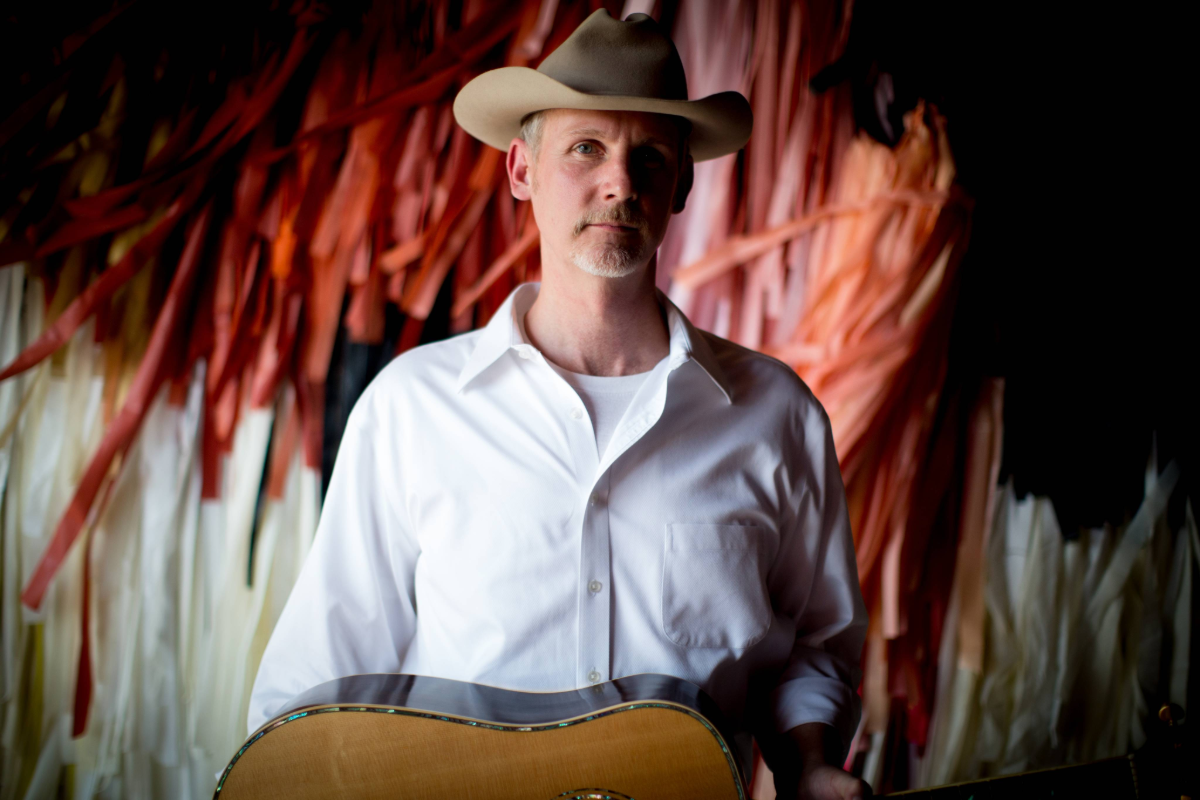
Allison V. Smith

Audio By Carbonatix
Max Stalling has done a lot in his decades as a singer-songwriter, recording six studio and three live albums and continuing to play more than 150 shows a year. One thing he hasn’t done is use artificial intelligence to write a song. “I have a negative vibe about it,” the Dallas-based artist says. “It seems to me it’s letting somebody else do the work.”
Not everybody in music is bothered by that. Timbaland, under his new company Stage Zero, has gone so far as to use AI music app Sunio to help create an artificial artist – TaTa – that will release recordings and appear in music videos to launch a new musical genre: A-Pop. Veteran producer Rick Rubin lauds AI-generated music as similar to punk rock in the way it permits the otherwise musically unskilled to create music.
Closer to home, Matt Winn, founder and CEO of Dallas-based Independent Recording Arts Society (IRAS), has also dipped into AI. “I’ve experimented with it a lot lately,” Winn says. While he has yet to incorporate AI into IRAS’s formal creative process, he’s used it as an individual for tasks including writing song titles and producing album art.
AI in Music by the Numbers
The available data on AI in music portrays a flash flood of computer-generated tunes washing over the scene. French streamer Deezer said last month that 18% of daily uploads to its platform are AI-generated, totaling 20,000 per day. While all-AI compositions are still just 0.5% of music on its site, Deezer reports the number is increasing rapidly.
Much is at stake. A December study by CISAC, a global network of societies representing authors, projected that by 2028, music creators will lose 24% of their revenues to AI. According to CISAC, the AI-made music market will grow from $3.5 billion to $75 billion.
Musicians themselves are leading the AI charge. Nearly half – 48% – of those surveyed by Ditto Music in May 2025 copped to using AI for tasks including writing songs, creating artwork and mastering. This was down from nearly 60% who told Ditto the same two years ago, however. The reason for the cooling interest, Ditto found, was that musicians decided AI didn’t support personal creativity.
Dallas Songwriters on the Age of AI
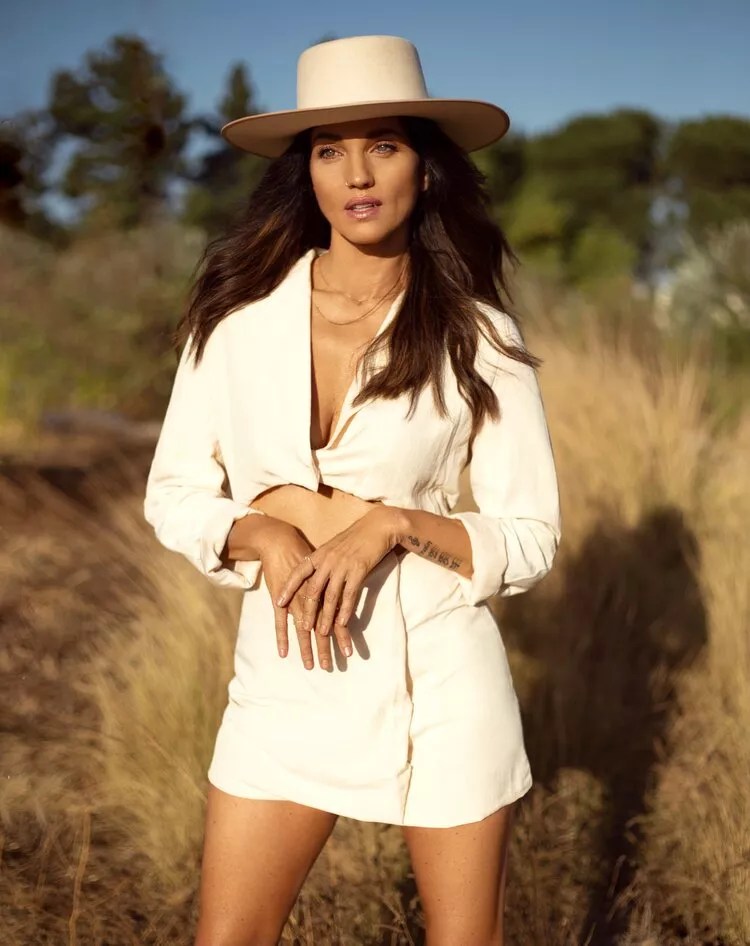
“At what point is the songwriter no longer a songwriter but a software engineer?” Leslie Austin asks.
Alex Eissinger
Shifting attitudes about AI in songwriting resemble reactions to previous music technology rollouts, from player pianos to Auto-Tune. This time it’s different, argues Dallas-based singer-songwriter Leslie Austin, who professes a general AI aversion. Unlike an online thesaurus or rhyming word website, she notes, AI can completely replace the musical artist with a well-designed prompt. “At what point is the songwriter no longer a songwriter but a software engineer?” she asks.
An unscientific survey of Dallas-area songwriters reveals a mix of attitudes toward AI in songwriting. Generally, however, they join Austin in opposition, at least when it comes to asking ChatGPT, Claude or the like to generate a complete song.
“I want to write my own stuff,” says Stephen Troum, frontman for the Fort Worth-based Troumatics and the Dallas Songwriter Association’s 2021 Songwriter of the Year. “I want to be the artist and protect the integrity of it,” he explains.
Dallas-based singer-songwriter and music educator Alexandra has yet to turn to AI for much of anything. “I don’t even think about using it in music yet,” she says, “but I have a lot of creative friends who use it for things like brainstorming vision boards or creating color palettes for the visual components.”
Nor is AI part of the musical toolkit for Katherine Paterson, a singer-songwriter based in McKinney. “I have never used AI to write songs, and I don’t think I’m familiar with any peers who are using it,” she says. For one thing, she worries about AI’s environmental impact. For another, she says she doesn’t need it.
Plano’s Carson Lewis is another stranger to AI songwriting. “To be honest, I’ve never even once thought about that as a thing to even consider,” says the singer-songwriter. “I’ve never heard of anyone doing that. That seems kind of wild to me.”
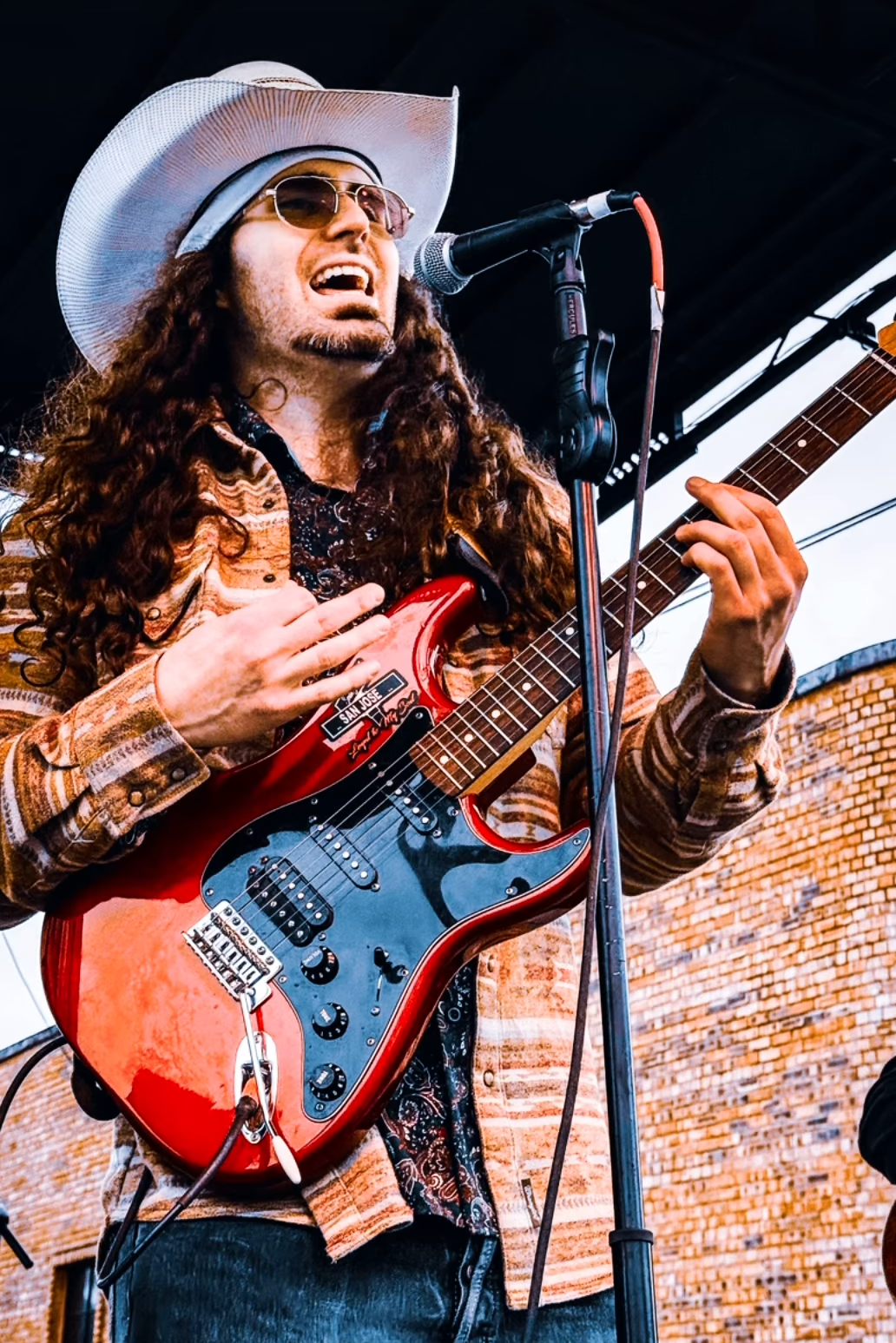
Carson Lewis doesn’t consider using AI to write his songs. “I’ve never heard of anyone doing that. That seems kind of wild to me.”
Carlos Olate
When it comes to creating art for posters or album covers, musicians are more open to AI. Max Stalling has used AI tools to produce images to guide a human graphic artist. Stephen Troum has prompted ChatGPT to make album covers. All maintain reservations about taking work from human artists, while being impressed with AI’s speed and capability.
Songwriters who avoid AI for chores more directly related to songwriting could be missing out, according to Winn. He cites a time he and an artist were struggling to create a title for an album. “I took all the lyrics he’d written and uploaded them to ChatGPT and asked it to tell me what this album is about,” he says. “What it spit back was amazing. Neither of us could articulate it in the way ChatGPT did.”
That sort of one-line contribution is, in Winn’s view, a valid and useful way to tap AI, similar to working with a human co-writer. “Just having a partner to help you think through the lines and be more intentional about the words you use and the ideas being expressed – AI is an excellent partner to ideate with,” Winn says.
There are places AI doesn’t belong, Winn says. Hip-hop is one, because AI lacks the authenticity and rawness that define hip-hop. “There’s no way to be authentic and say you use AI to help write lyrics,” he says.
Authenticity is not the only issue dogging AI music. Major labels have sued the makers of the AI music apps Suno and Udio, alleging they infringed copyright by using their catalogs to train the software that creates music.
Whatever the outcome of that legal tussle, streaming platforms already discriminate against AI-created music. Deezer, for instance, is excluding tracks it identifies as AI-generated from algorithmic feeds and editorial recommendations.
A more slippery concern is the one voiced by several songwriters: the potential devaluation of creating music when computers do it so easily, quickly and in such volume.
Stalling ponders whether, with AI generating masses of new music consumed by people listening through low-fidelity earbuds, songs will become disposable, quality unimportant and authorship irrelevant. “The concern is that people will stop trying to discern whether music is written by a machine or by humans,” he says.
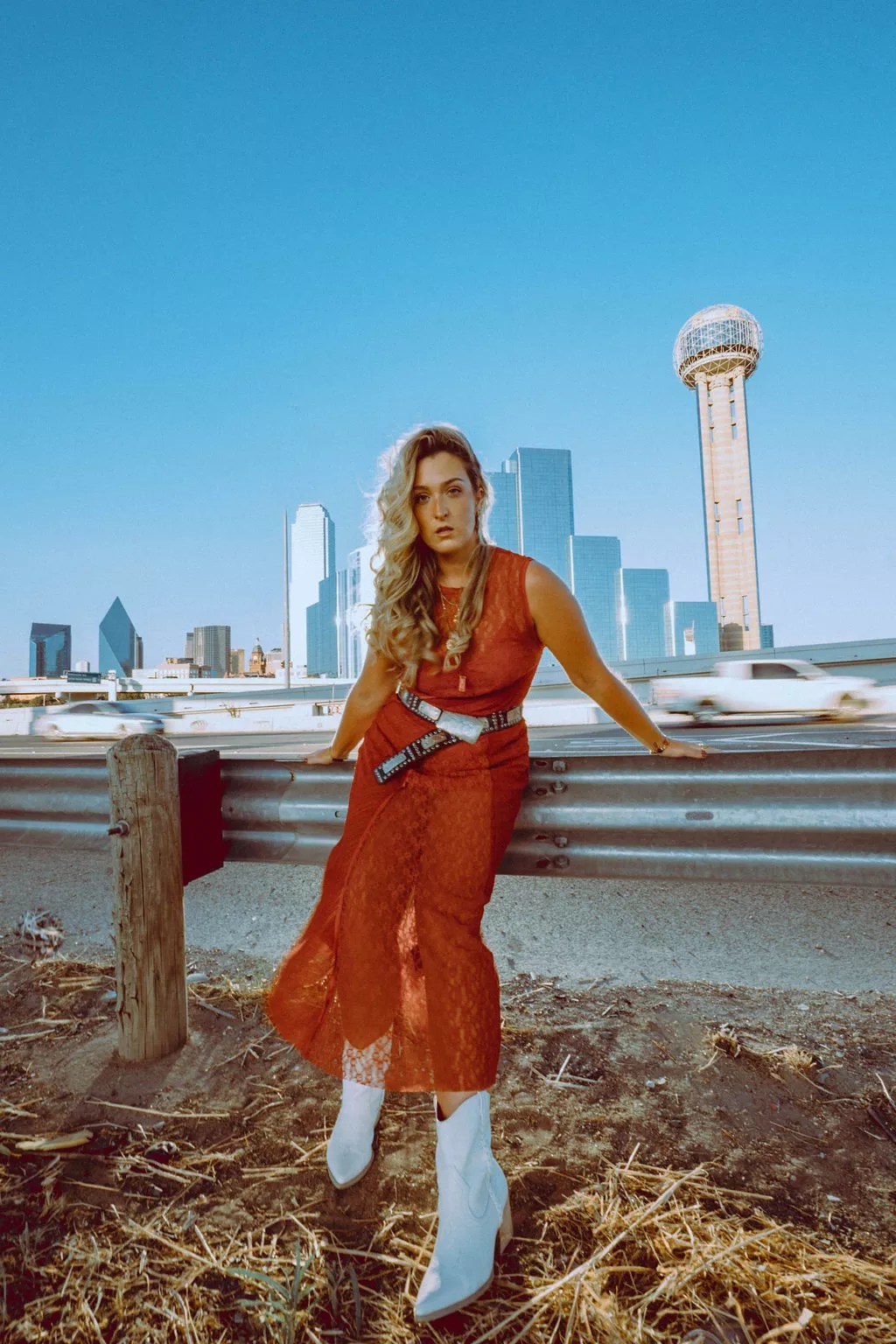
“So much of songwriting and the folklore of these songs that we’ve fallen in love with comes from a personal, intimate narrative,” Alexandra says.
Courtesy of Alexandra
We may already be there. Consider “Heart on My Sleeve,” an AI-generated track mimicking Drake and The Weeknd. In 2023, the track went viral and racked up millions of plays before streaming platforms pulled it over copyright concerns. Notably, even after its artificial origins were revealed, people kept listening.
That suggests limits to the effectiveness of an approach that songwriters like, namely, labeling a song if it’s AI-generated. “It probably should be labeled,” Lewis says. “Although I’d like to think I’d be able to tell without it being labeled.”
Austin expressed a nuanced view, considering whether using AI for a word or a line would require labeling. “Is that just like using a thesaurus or rhyming dictionary?” she asks. “Obviously, if it wrote the whole song, it should be labeled.”
Given that music is a business as well as an art, AI’s ultimate place in songwriting may be largely determined by whether AI-written songs make more money than human-written songs. Freed of paying songwriter royalties, labels will likely have lower costs. And people seem to like AI-written songs well enough, as the Drake-The Weeknd episode demonstrates.
But even if AI rings cash registers, songwriters emphasize the value of the human living they have experienced, something no AI can match because it hasn’t lived. “So much of songwriting and the folklore of these songs that we’ve fallen in love with comes from a personal, intimate narrative,” Alexandra says.
Dallas Songwriters Respond to AI Concerns
Songwriters concerned about AI are reacting mainly by not using it, at least to write songs. “My response is going to be to not participate in it,” Alexandra says. “Not as an act of defiance, but as a commitment to the mission that I set out to do as a songwriter, which was to tell authentic stories through real, authentic songs.”
Austin’s approach is to emphasize unrestrained emotion and live performance, based on the idea that no AI can actually be a human up on stage. “There’s an element of something you hear on a recording, and definitely what you see live, that can never be replaced,” she argues.
Winn suggests musicians consider pushing for laws to protect their work from exploitation by AI bots, while also striving to do right themselves. “There has to be ethical use of AI, and creators are the ones who have to set that standard,” Winn says. “It can’t be up to companies or the music industry what’s ethical. It has to be completely decided by the creators.”
No one, among Dallas’ songwriters or the industry at large, suggested that AI in music is anything but here to stay. It’s a matter of coexisting, not stopping.
For his part, Stalling suspects the AI revolution might be positive for performers.
“If somebody can pick up an instrument and play, even if it’s something the AI created, I think people will yearn for that experience in the real world,” he says. “So one of the upshots of this might be that the live music industry will see growth, because there will always be a place for people who want that experience.”
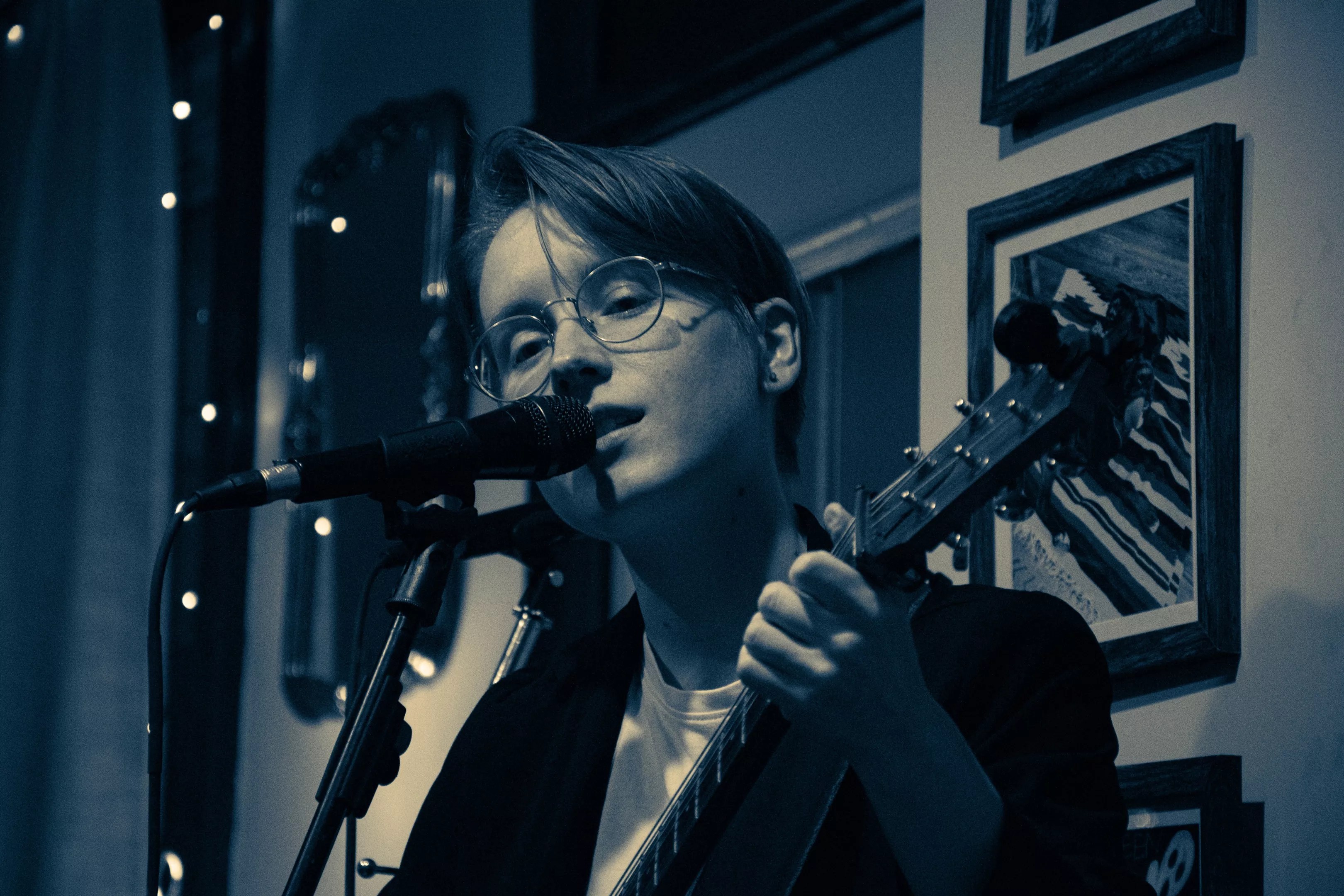
“I have never used AI to write songs and I don’t think I’m familiar with any peers who are using it,” Katherine Paterson says.
Andrew Gerace
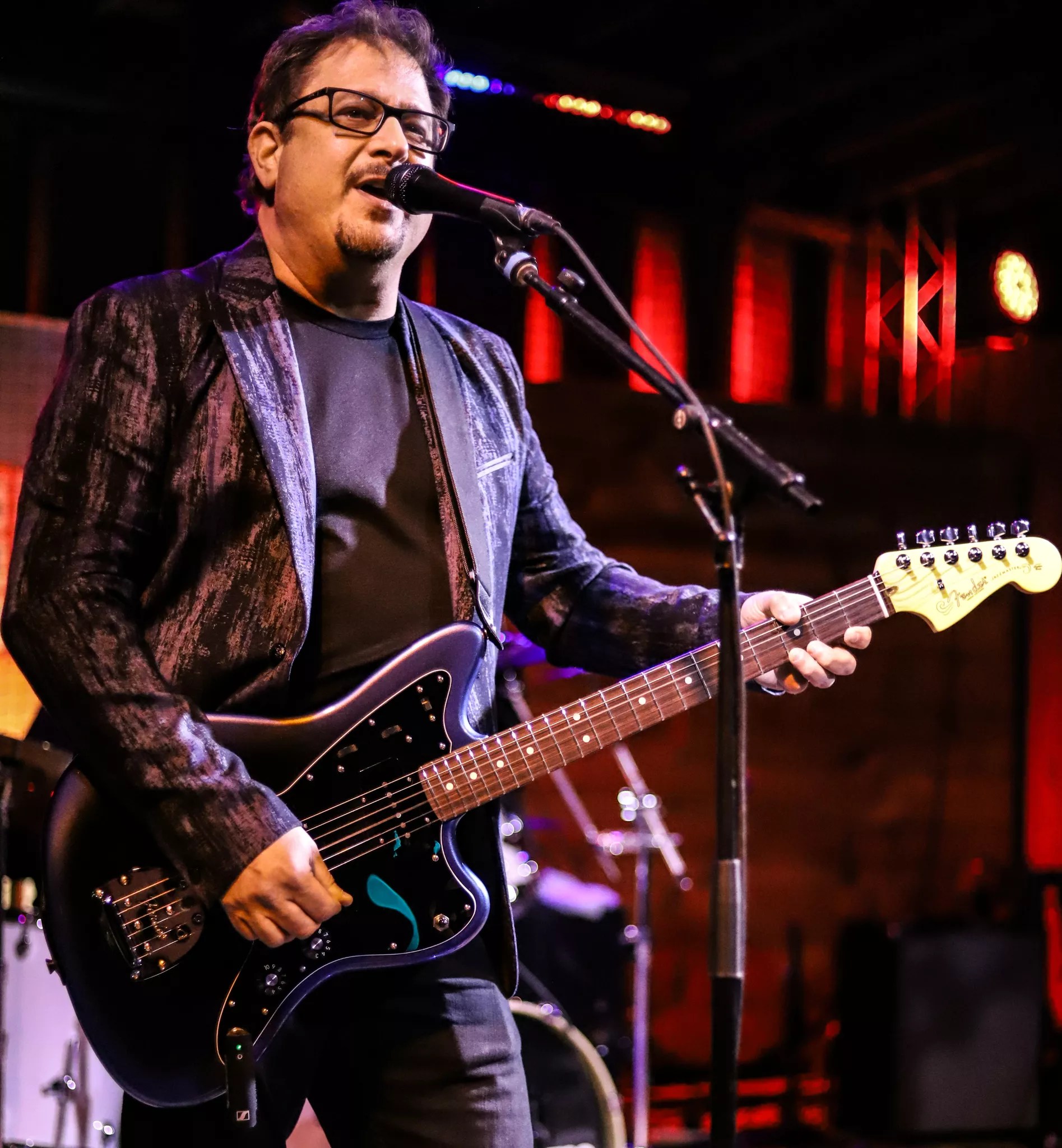
“I want to write my own stuff,” declares Stephen Troum. “I want to be the artist and protect the integrity of it.”
Johnny Govea